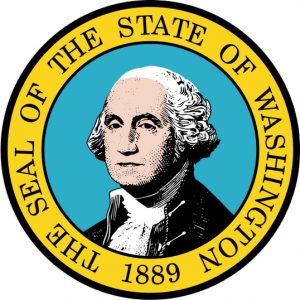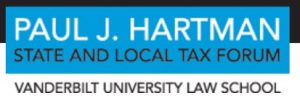Pillsbury SALT partner Breann Robowski will present during this month’s California State Board of Equalization’s meeting on October 19-21, 2021.
Washington Supreme Court Upholds B&O Surtax on Financial Institutions
On September 30, 2021, the Washington Supreme Court upheld the constitutionality of the state’s 1.2% Business & Occupation (“B&O”) surtax on large financial institutions. Wash. Bankers Ass’n v. State, No. 98760-2 (Wash. 2021). The surtax, which went into effect January 1, 2020, applies to every “specified financial institution,” which is defined in relevant part as a financial institution that is a member of a consolidated financial institution group with consolidated annual net income of $1 billion or more. 
The Washington Bankers Association and the American Bankers Association (collectively, the “Associations”) filed a declaratory relief action seeking to invalidate the surtax on the grounds that the measure discriminates against interstate commerce in violation of the Commerce Clause. In 2020, a Washington trial court entered summary judgment for the Associations, holding that the statute discriminates against interstate commerce in purpose and effect. The trial court also held that the Associations had standing under the state’s Uniform Declaratory Judgments Act (the “UDJA”) to bring an action on behalf of their members challenging the surtax. Continue Reading ›
California Governor Vetoes Sales Tax Bill Seeking to Require Large Online Retailers to File Informational Reports Detailing Sales by Destination
This week, Governor Newsom vetoed Senate Bill 792 (Glazer), which would have required large online retailers to include with their sales tax returns an additional schedule that reports gross receipts based on the “ship to” or destination location. The bill targeted online retailers with over $50 million in annual sales of tangible personal property. Qualifying online retailers that failed to report this information would have been subject to a penalty of $5,000.
to include with their sales tax returns an additional schedule that reports gross receipts based on the “ship to” or destination location. The bill targeted online retailers with over $50 million in annual sales of tangible personal property. Qualifying online retailers that failed to report this information would have been subject to a penalty of $5,000.
California imposes a statewide sales tax on retailers for the privilege of selling tangible personal property at retail within the state, measured by the gross receipts from each sale. An additional sales tax of 1.25% (the Bradley-Burns Tax) is imposed on sales subject to the statewide sales tax, of which 1% is allocated to localities to use at their discretion and the remainder is distributed to county local transportation funds to support transportation programs. Continue Reading ›
28th Annual Paul J. Hartman State and Local Tax Forum

Pillsbury SALT attorney Zachary Atkins will present
“Market-Based Sourcing, the Continuing Conundrum” during the 28th Annual Paul J. Hartman State and Local Tax Forum on October 28. The Professor Paul J. Hartman Memorial State and Local Tax (SALT) Forum, sponsored in conjunction with the Vanderbilt University Law School, provides industry, practitioners and state revenue employees the opportunity to participate in a quality forum exploring significant national developments and trends in state and local taxation.
Verizon’s Small Business Accelerator Program
Pillsbury SALT attorney Zachary Atkins will present during Verizon’s Small Business Accelerator Program on October 1.
Taxpayer Files Court Action Challenging California’s Proposition 39 (2012) and its Mandatory Single-Sales Factor Apportionment Formula

In One Technologies LLC v. Franchise Tax Board, an out-of-state California corporate taxpayer filed suit in California trial court challenging the state’s mandatory single sales factor apportionment formula on the basis its passage in 2012 via voter initiative Proposition 39 unconstitutionally violated the “single subject rule.”
CDTFA Proposes Amendments to Regulation 1706 (Drop Shipments) to Clarify that Marketplace Sales Are Generally Not Drop Shipment Transactions
The California Department of Tax and Fee Administration (Department) has given notice that it proposes to amend California Code of Regulations, title 18, section (Regulation) 1706, Drop Shipments. Regulation 1706, subdivision (c) provides that a drop shipper making a drop shipment must report and pay tax measured by the retail selling price of the property paid by the California consumer to the true retailer, unless the sale and use of the property are otherwise exempt. The proposed amendments clarify that marketplace sales are generally not drop shipment transactions and provide more guidance about how a person can overcome the presumption they are a drop shipper.  Continue Reading ›
Continue Reading ›
California’s Long-Awaited Market-Based Sourcing Regulation Amendments: Why Participate in the Formal Regulatory Process?
Five years and six interested parties meetings later, California is finally ready to proceed with the formal rulemaking process to adopt substantial amendments to its market-based sourcing rules. At the Franchise Tax Board’s September 9, 2021 meeting, FTB staff requested permission and received approval from its three-member Board to commence the formal regulatory process under California’s Administrative Procedure Act (APA) to amend California Code of Regulations, Title 18, section 25136-2 (Regulation 25136-2).  Continue Reading ›
Continue Reading ›
West Virginia: Streaming Services Subject to Sales and Use Tax
The West Virginia State Tax Department released new guidance, TSD-445, that clarified that streaming services are subject to sales and use tax in the state. The Department’s guidance distinguishes streaming services from digital products, which are specifically exempted under the law. The Department explains that streaming services are subject to a 6% state sales and use tax, in addition to up to 1% in municipal sales and use tax if applicable, because West Virginia taxes all services unless a specific exception or exemption applies.
Western States Petroleum Association’s Virtual Property Tax and Excise Tax Educational Forum
Pillsbury SALT partner Jeffrey Vesely will present during WSPA’s virtual event on October 13. Continue Reading ›
Continue Reading ›



